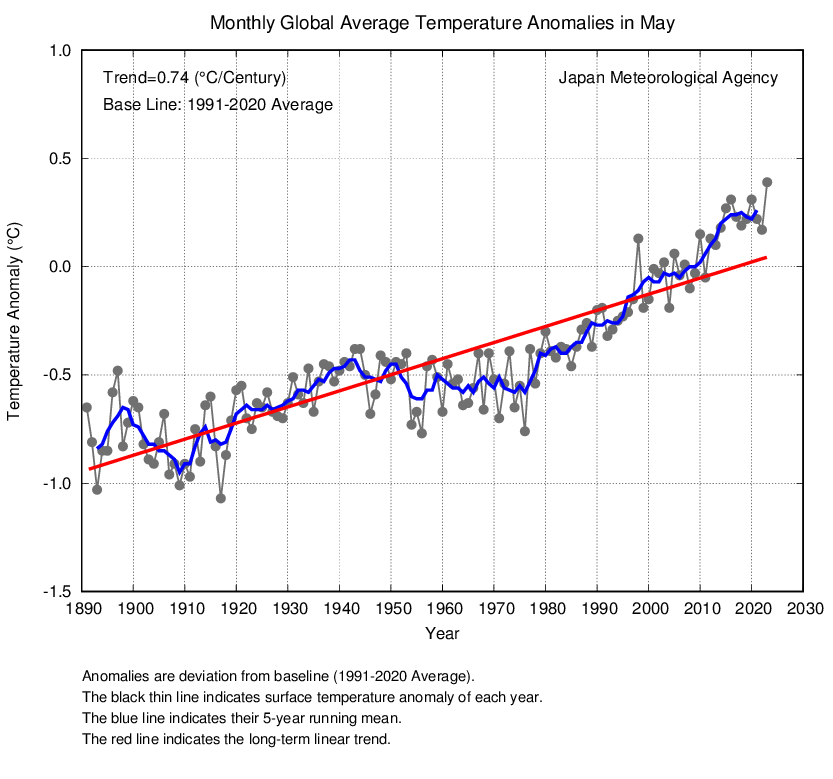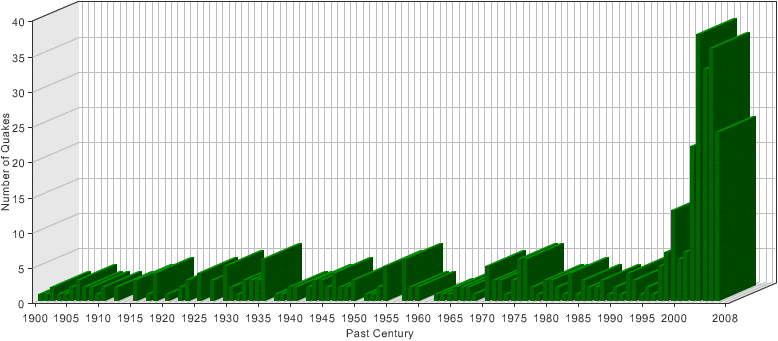ScienceRocks
Democrat all the way!
- Banned
- #1
Hottest June on record and the hottest 6 months on record..Noaa!
Global Analysis - June 2015 National Centers for Environmental Information NCEI
Pretty fucking Amazing I'd say.
Global Analysis - June 2015 National Centers for Environmental Information NCEI
The combined average temperature over global land and ocean surfaces for June 2015 was the highest for June in the 136-year period of record, at 0.88°C (1.58°F) above the 20th century average of 15.5°C (59.9°F), surpassing the previous record set just one year ago by 0.12°C (0.22°F). This was also the fourth highest monthly departure from average for any month on record. The two highest monthly departures from average occurred earlier this year in February and March, both at 0.90°C (1.62°F) above the 20th century average for their respective months, while January 2007 had the third highest, at 0.89°C (1.60°F) above its monthly average.
June 2015 also marks the fourth month this year that has broken its monthly temperature record, along with February, March, and May. The other months of 2015 were not far behind: January was second warmest for its respective month and April was third warmest. These six warm months combined with the previous six months (four of which were also record warm) to make the period July 2014–June 2015 the warmest 12-month period in the 136-year period of record, surpassing the previous record set just last month (June 2014–May 2015). As shown in the table below, the 10 warmest 12-month periods have all been marked in the past 10 months.
The first six months of 2015 comprised the warmest such period on record across the world's land and ocean surfaces, at 0.85°C (1.53°F) above the 20th century average, surpassing the previous record set in 2010 by 0.09°C (0.16°F). It should be noted that 2010 was the last year with El Niño conditions; however El Niño had ended by this point in 2010, while it appears to be continuing to mature at the same point in 2015.
The average global sea surface temperature of +0.65°C (+1.17°F) for the year-to-date was the highest for January–June in the 136-year period of record, surpassing the previous record of 2010 by 0.04°C (0.07°F). The average land surface temperature of +1.40°C (2.52°F) was also record high, surpassing the previous record of 2007 by 0.13°C (0.23°F).
Pretty fucking Amazing I'd say.





